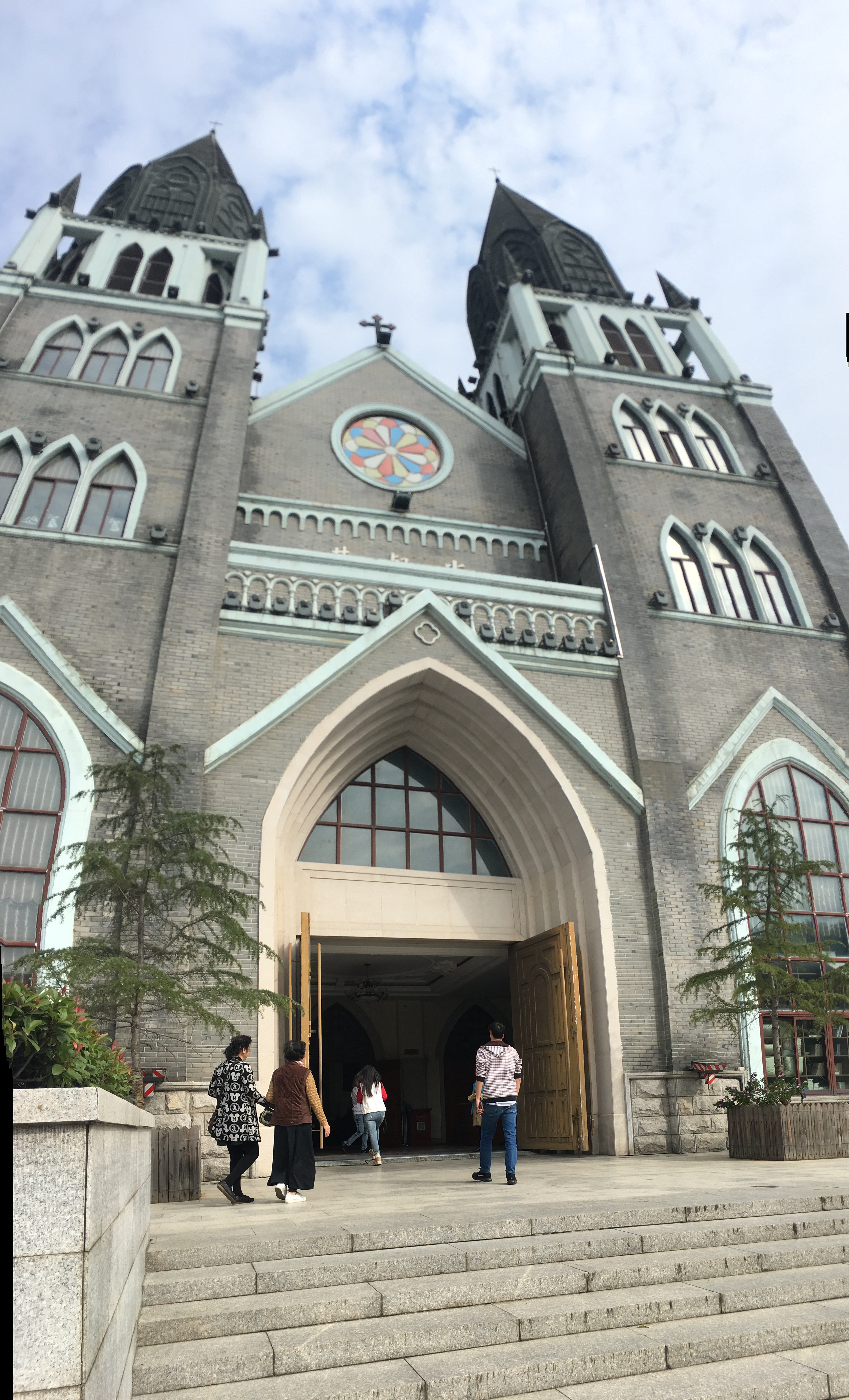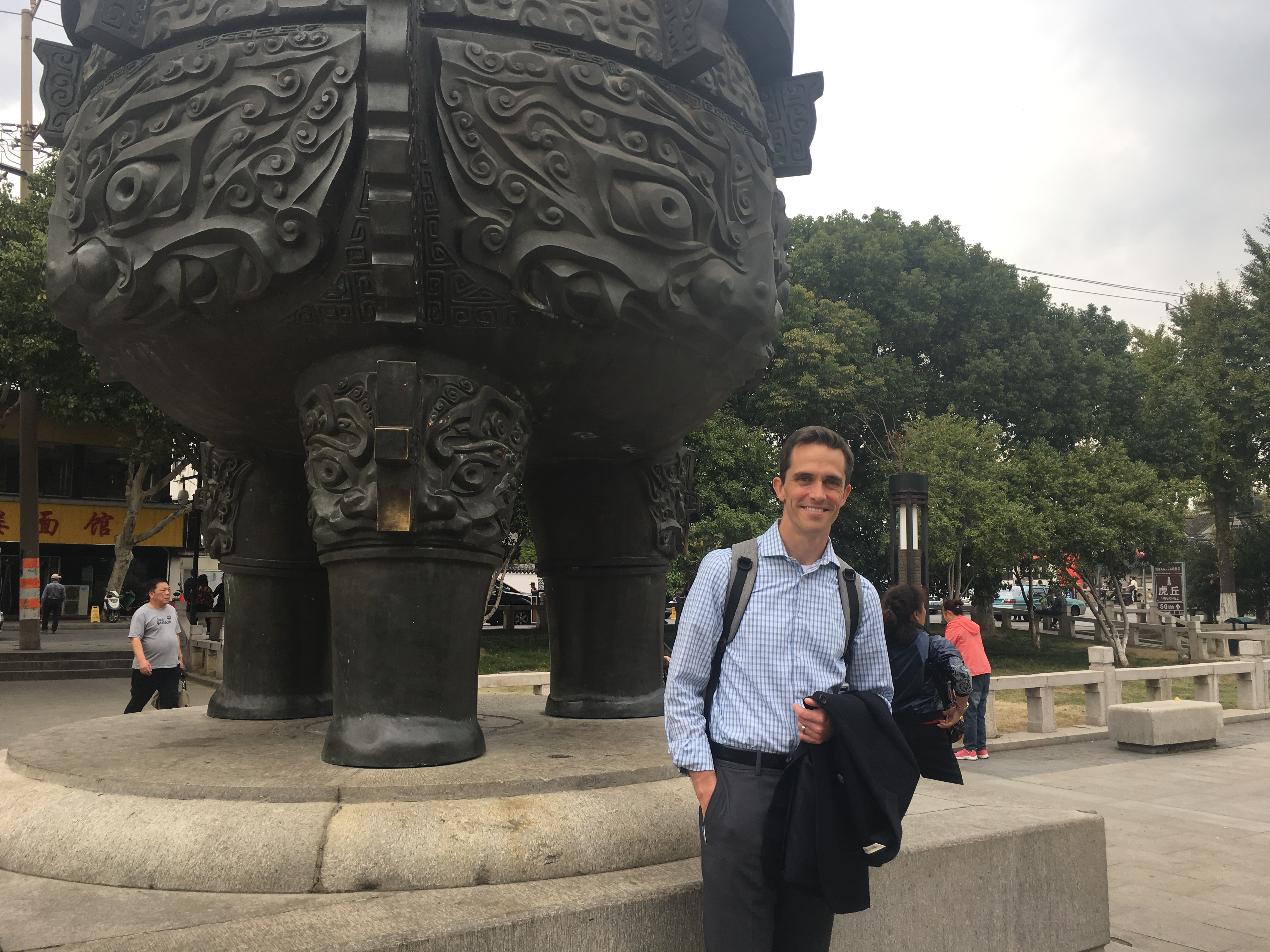Day 4: Travel to Suzhou, church visit, and dinner with the pastor
Well it happened! Night three had me sleep from about 9:30pm to about 5:30 am! So I’m feeling good today. Breakfast at the hotel and a bit of devotional time with four from our UPPC group, then we boarded the bus to Suzhou. That’s where I was while writing this, actually. The trip should be about 2.5 hours long, and my only concern is having to use the bathroom…!
…Well we made it. The trip was closer to 4 hours, though. And we think traffic on I-5 is slow… I did have to go to the bathroom pretty badly in what looked on the map like at least an hour before we would arrive in Suzhou, so I was trying to stay in conversation and focus on something else! But our driver intuitively knew to pull off at a sort of huge highway stop. Tons of people there, so it’s obviously designed for travelers. We had a chance to stretch and use the bathroom. Tried a little Chinese “sweet” biscuit that a friend in our group was sharing, and yep, it was another example of “interesting.”
When I travel, I try to notice the little things. The things that make you feel like you’re in some kind of parallel universe. Like, we all have public bathrooms, right? But pretty much all of the public restrooms I used in Shanghai, Nanjing, and Suzhou had live plants in them. A remarkable consistency with the live plants. No difference at this highway stop, except that there were way, way more plants. Hanging plants, potted plants on shelves. I figure it has something to do with air quality, you know how plants emit oxygen? But even if they were doing that, the place still smelled like…well, you know.
Another small difference I’d never seen before were ashtrays filled with coffee grounds. I noticed that there is a lot more public smoking in the three cities I visited, and public places accommodate smokers so they aren’t motivated to just litter their cigarette butts on the floor. I grew up in the 80s and saw plenty of ashtrays. But this was the first time I’ve seen coffee grounds instead of sand to put smokes out in!
We finished at the stop and in only another hour or so were pulling into our third hotel in Suzhou, right across the street from a large, beautiful park that borders the east side of Dushu Lake. Our trip leader obviously chose this hotel because it’s an easy walk to Dushu Lake Christian Church where we would spent a portion of our time in Suzhou. The lake is really large – not “great lakes” size but pretty huge for being in the middle of a city. The park offers a nice respite from the crowded busyness of Shanghai and downtown Nanjing we had experienced until now. And then, there were all the brides and grooms.
Turns out that this pastoral context is a popular place for couples to get their wedding pictures. Really popular. But in this area they get their pictures in advance of their wedding. Very different from home. These aren’t “engagement photos.” The bride is completely done up: hair, make-up, dress. Sometimes even multiple dresses. The groom is wearing a suit or tux. And the photo crews! It’s like a magazine shoot. When we walked to the van that would take us to visit Tiger Hill, we even walked through a parking lot LINED with cars, each with a bride, groom, and photo crew, using the parking lot as a dressing and prep area for their shoot. Seriously, each of the three days I was in Suzhou, I saw multiple photo shoots for multiple couples. They must have hundreds per year.
After an hour to settle in, we met with a pastor at DLC who would also do some translating for us. We walked to the church and marveled at the grounds and the size of the buildings. The massive brick and stone gothic church looks like something out of medieval Europe. But it was built only in 2011. Only eight years old! They’re experience growth in the congregation due to a combination of new believers, internal migration for work opportunities, and the 14 colleges that fill Suzhou with young adults. The congregation is about 30% people between 18 and 30 years old.
During our visit to DLC, we also met the lead pastor and also a senior member of the CCC. He spoke with us for a while and then we all walked to a fancy dinner. The food was adventurous, of course, and included eel, a complete fish (with head and tail), eggplant, and shrimp in a warm cream sauce, among other things. It was quite good for the most part! Although I did find myself very warm in the muggy Suzhou evening, in a room with no airflow, in a culture that almost never provides cold drinks. It’s room temp or hot drinks for the most part. That includes water and Coke – room temp. It’s all right, though, as we weren’t supposed to drink the tap water, and that includes not having ice in one’s drink. The one beverage we did have was a kind of pureed black bean liquid. It looked a little like chocolate milk, but more purple and with lots of little specks in it. And of course, it is also served warm.
After dinner a few of us got together and prepped for what we thought would be our big morning – the Discipleship Exchange. By the time I went to bed, I was so tired I could hardly see straight. Tomorrow, the Exchange.






